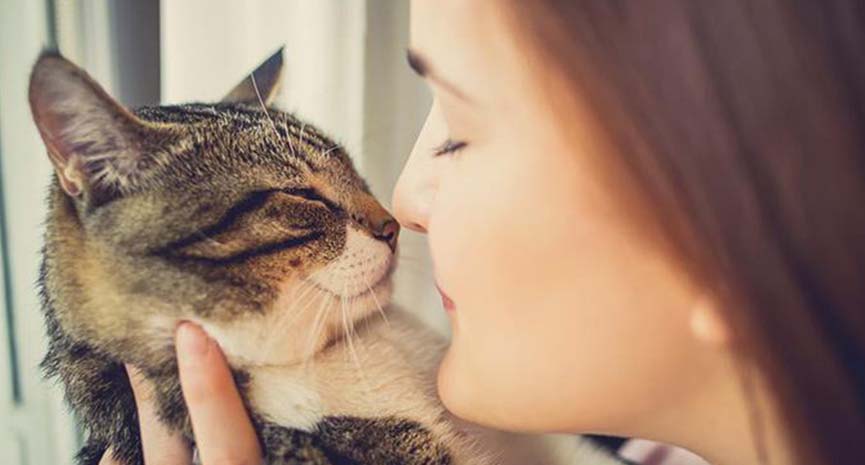Popular as dogs are with their devoted owners, there are actually more cat companions in the U.S. than canines–16 million more, in fact. And while your kitty won’t encourage you to exercise by begging to go out for a hike, research shows the sound of a cat’s purr can lower your blood pressure and reduce stress
According to USA Today: “Research shows that being able to care for a pet improves our morale, helps validate us and encourages us to take care of ourselves,” says Rebecca Johnson, director of the University of Missouri’s Research Center for Human-Animal Interaction.
Some parents have discovered the family cat can help teach children the values of compassion and gentleness. Most dogs will allow family members to wrestle with them, chase after them, and roughhouse. In fact, many dogs live for that type of interaction.
Cats on the other hand, do not. If a child (or anyone) treats a cat roughly or aggressively, kitty will bolt from the room, putting an end to the interaction between human and pet. So children learn the difference between sturdier, more tolerant pets and those that require careful, gentle handling.
Dr. Dennis Turner, a leading expert on the feline-human bond, explains why he likes cats: “I appreciate the fact that they’re very sensitive. They are very independent thinkers and independent actors and they’re very elegant and beautiful to watch. I could watch cats for hours.”
Dr. Turner has used Information Theory, a complex mathematical system employed in computer science to determine whether two entities are communicating, to prove that kitties and their people transfer information back and forth.
Accordingly, each feline-human pair has an individual way of communicating, due in part to the wide variety of behaviors cats use to ‘talk’ to their human family.
Some kitties like to rub up against your legs, while others rub their head against yours.
Some cats sit very still while staring at you, others tilt their head in an irresistible questioning gesture.
Many kitties vocalize as a way to communicate. Some scratch the floor or stand on hind legs and reach for you with their front paws.
Some kitties deliver little nibbles to their human’s face or neck.
And one feline veterinarian specialist stated she even has a client whose big, handsome orange tabby rears up on his hind legs, stretches himself to his full length, and paws at his dad’s rear end as he stands at the kitchen counter preparing the cat’s meal!
The research shows that unlike dogs, cats follow their owner’s lead when it comes to how much involvement they have with each other.
Some cat owners prefer a lot of interaction with their pet, others don’t have much time to devote or simply prefer less interaction. Kitties are quite adaptable to their humans’ needs in this regard and fall into step easily with the pace the owner sets. They do this without complaint, and their independent self-sufficient nature helps them get along without a need for the same level of interaction their canine counterparts demand.
Even more amazing is the discovery that cats seem to understand the need for balance in their relationship with their humans… “What we found was the more the owner complies with the cats wishes to interact, the more the cat complies with the owners wishes, at other times. They go up together, or they go down together. If the person doesn’t comply with the cats wish to interact then the cat doesn’t comply with the persons’ wishes. It’s a fantastic give and take partnership. It’s a true social relationship between owners and cats,” said Dr. Turner.
That same research has also revealed that when a cat interacts with their depressed human, it can discern whether or not the owner is sad or anxious. That cat then reacts by increasing it’s communication signals–perhaps rubbing against the owner more aggressively or meowing loudly. This strong reaction is obvious to the cat owner. It’s comforting to know a loved one, whether on two legs or four, has noticed you don’t feel well and shows concern for your welfare.





